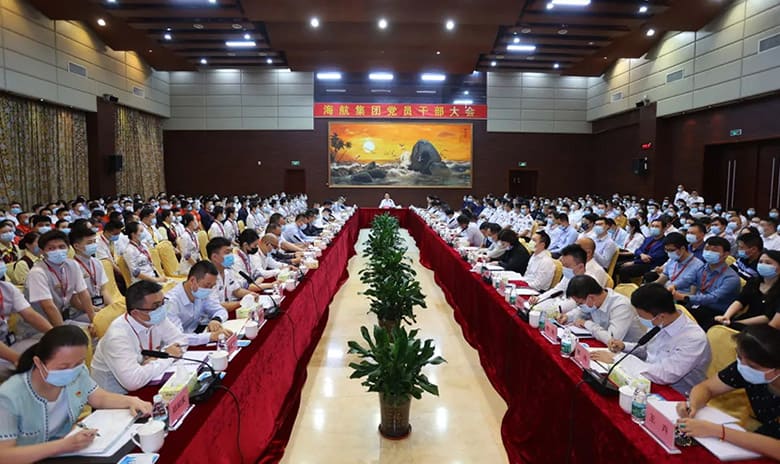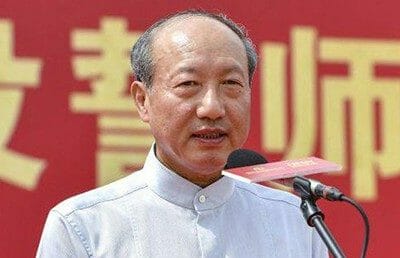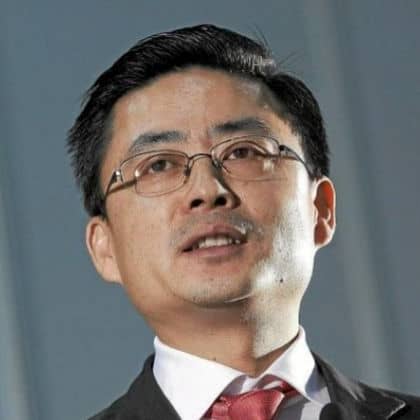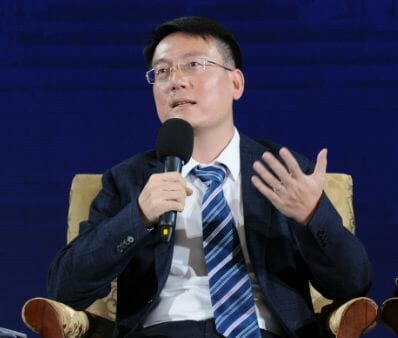
Chen Feng’s fate was announced at an HNA meeting on Friday
China’s HNA Group, which declared bankruptcy earlier this year after struggling to pay off debts that once totalled over $100 billion, has added a new chapter to its restructuring as two of its top officials have been taken away by police.
Chairman Chen Feng, who founded Hainan Airlines in 1989 and grew it into the sprawling conglomerate known as HNA, was detained for suspected crimes, along with chief executive Adam Tan, HNA said in a statement to its official WeChat account late Friday.
The detention of Chen and Tan came one week after HNA, which has been controlled by Hainan government officials since early 2020, had announced a reorganisation plan that would split HNA into four new business units, and wiped out the company’s existing shareholders, including the now former management team.
The potential criminal prosecution of Chen and Tan could foretell the eventual fate of Evergrande boss Xu Jiayin and his team as that group attempts to restructure $300 billion in debt.
Strengthen Party Leadership
At the same time that HNA announced the detention of Chen and Tan, the company called an in-person and remote meeting of “more than 2,700 party members, cadres and staff representatives” that was presided over by Gu Gang, a Hainan government official who was appointed executive chairman of HNA in March last year and leads a working committee responsible for restructuring.

HNA founder Chen Feng disappeared from a list of the group’s party committee earlier this year
In addition to informing the group of the policy action, at the meeting Gu shared information from the Hainan Provincial Party Committee with the attendees in a call for unity. Gu, who serves as chairman of provincial investment body Hainan Development Holdings, stressed that the group must uphold and strengthen the party’s overall leadership as it enters a sprint to limit risk while concluding HNA’s bankruptcy and reorganisation.
On 18 September, HNA had announced that, should it be able to successfully emerge from bankruptcy, it would operate as four independent units focused on aviation, airport operations, finance and commerce.
Shareholding Clarified
In that same meeting, the company said that its existing shareholders, which included Tan and Chen, as well as a pair of non-profit foundations widely believed to shield holdings by Chen and associates, would see their equity interests wiped out as part of the reorganisation.

Adam Tan was candid about the fluid nature of HNA’s shareholding
HNA’s shareholding has long drawn attention for its opaque nature, with Tan having explained in a 2017 interview that the group had transferred a nearly 30 percent stake in the company from an obscure 30-something Beijing resident and Indian businessman, Bharat Bhise, to a New York-based charitable foundation that it had recently established, because it was a truer reflection of the actual ownership of the shares.
“The (29.5 percent) stake is our (HNA’s) own stake. For the whole time. They (Mr Guan and Mr Bhise) had just held the stake for us. That’s why I can move the shares,” Mr Tan said in the FT discussion.
One year later, HNA founder and co-chairman Wang Jian, who at the time owned around 15 percent of the company, died suddenly in a reported accident while on holiday in France with his family.
Endangered Rhinos
After stacking up debt through a string of domestic and overseas acquisitions, which included trophy properties in New York and London, as well as a set of four plots in Hong Kong’s Kai Tak area, HNA struggled to sell off properties it had purchased at often well above market pricing.

Gu Gang has been running the show at HNA since last year
The group’s profligate spending led to it becoming one of four companies targeted by mainland regulators in 2017, as China became concerned over “systemic risk” posed by outsized overseas investments.
Chinese authorities termed HNA and its cohort “grey rhinos” for the slow-moving hazard they represented to the company’s financial system in a country where tight control of the markets practically rules out black swan events.
While two other firms on that list, Wang Jianlin’s Dalian Wanda Group and Guo Guangchang’s Fosun Group, were successful in reducing their overseas holdings, HNA needed to be taken over by local authorities before many of its asset sales could take place. Just last month, receivers appointed by HNA’s creditors put up for sale a $71 million apartment in Hong Kong, and a Melbourne commercial project was put on the market by PwC in July after HNA had purchased it in 2016.
Evergrande boss Xu Jiayin may have escaped earlier rhino hunts thanks to the group’s limited activity overseas, but the financial mess created by the developer’s collapse could point to future legal jeopardy for the billionaire businessman.
China’s growing emphasis on stability and Evergrande’s $300 billion in debts, combined with scenes of unhappy investors in the company’s wealth management products protesting in its offices, could push Xu’s fate close to that of HNA’s Chen, while Wanda boss Wang Jianlin celebrates having just raised $6 billion in the run-up to his firm’s return to the Hong Kong exchange.
Leave a Reply